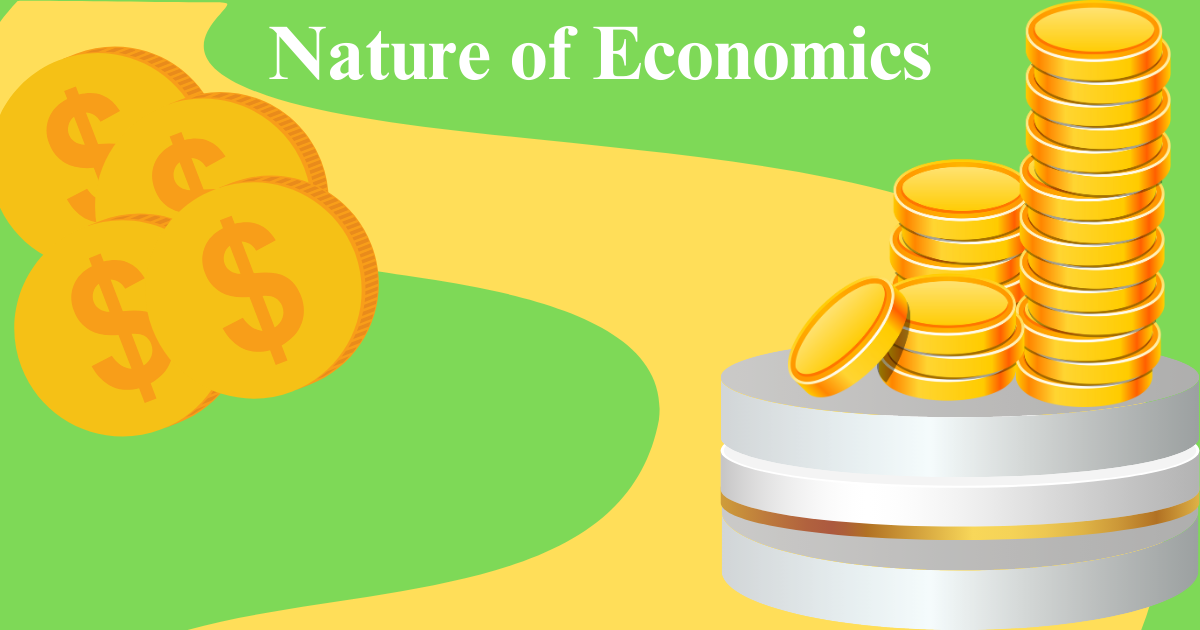Nature of Economics

Economics is a social science that deals with the economic activities of people. People have unlimited wants, but the resources required to satisfy these wants are limited. The scarcity of resources in the presence of unlimited wants gives rise to all economic activities. If the resources were not scarce, there would not be any economic activity at all. With unlimited resources, a person could get as much as he would like to have without any work. Economics is rightly called the study of the allocation of resources for satisfying human wants.
Since people cannot satisfy all wants with limited resources, they have to choose the most urgent ones from unlimited wants. A person may feel the want for food, color television, and a host of other items, but he must meet his want for food before anything. The choice problem arises also because a resource has alternative uses. For example, a piece of land can be used for growing paddy or it can be used for building a market on it or it can be put to any other use its owner thinks most profitable. Once its owner has put it to one use, it cannot be used for other purposes. The best use of a resource can be assured by utilizing it to meet the most urgent and important wants. The definition of Economics is based on the fundamental concepts of unlimited wants, limited resources, the choice problem, and alternative uses of resources. Professor L. Robbins defines economics as "Economics is the science which studies human behavior as a relationship between ends and scarce means which have alternative uses.''
Share :

Add New Comment